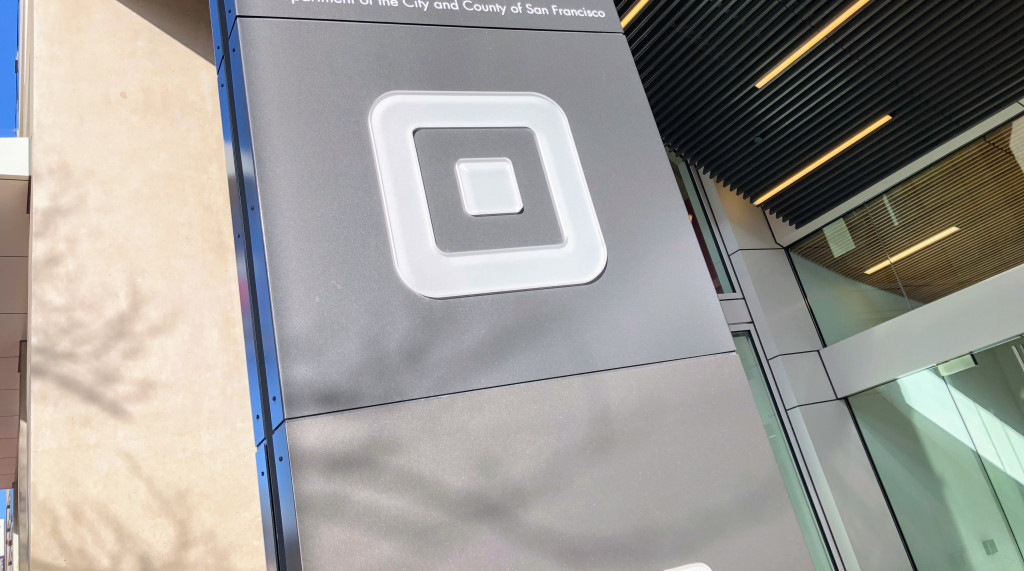Industry News
CAN Capital to Grow Team and Business with New Facility
September 5, 2018 CAN Capital CEO Parris Sanz at Broker Fair May 2018
CAN Capital CEO Parris Sanz at Broker Fair May 2018CAN Capital announced today that it agreed to a financing transaction of up to $287 million, provided by Varadero Capital. This is CAN Capital’s second facility with Varadero Capital. The first one came in July 2017. This financing will be used to fund more small business loans and to invest in talent and technology to enhance customer experience. The company plans to grow the size of its team with this new facility.
“We look forward to utilizing this funding to expand our ability to provide access to capital for small businesses, enhance our technology stack, and continue to build a dedicated, customer-driven team,” said Parris Sanz, CEO of CAN Capital.
CAN Capital also announced today that it has now provided small businesses with access to over $7 billion of working capital through more than 190,000 funding transactions with over 81,000 small business owners.
“Reaching $7 billion in working capital is a significant milestone for us,” Sanz said. “We are excited to use our deep experience and data to enable even more small business owners to grow with streamlined access to capital.”
CAN Capital makes business loans from $2,500 to $250,000 that last between 6 and 18 months. And they provide merchant cash advance financing, also from $2,500 to $250,000. They also work with broker partners to fund deals.
Founded in 1998, CAN Capital is among the oldest alternative lending companies. After an issue plagued them in 2016, the continued growth and confidence in the company from Varadero Capital is noteworthy. The company is now growing when it was making layoffs less than two years ago. Currently, CAN Capital’s headcount is 142.
“Since our initial facility, we’ve been impressed by the work ethic and dedication of CAN Capital’s staff, which have driven consecutive quarters of business growth and boosted confidence in the company’s fundamentals,” said Fernando Guerrero, Managing Partner and Chief Investment Officer at Varadero Capital.
IOU Financial Profitable, Again
August 23, 2018
IOU Financial originated $29.2 million during Q2 2018, according to the company’s quarterly financial statement released today. This is an increase of 11.6% compared to the same period last year, and an increase of 19.1% over originations of $24.5 million from last quarter. This is also IOU’s third consecutive quarter with positive earnings.
“It’s the contribution from our team, our account executives, broker partners [and] product expansion,” IOU CEO Phil Marleau told deBanked as an explanation for the company’s growth.
Marleau said that over the past year IOU has been originating loans for larger amounts and for longer terms, like longer than 12 months. He also said IOU has been expanding into new industries.
Benjamin Yi, who leads IOU’s Capital Markets & Corporate Development efforts, characterized the company’s results as a “mini version of OnDeck,” alluding to OnDeck’s profitable 2018 Q2 earnings report.
Additionally, provision for loan losses (net of recoveries) decreased by 61.2% to $900,000 for the three month period ending June 30, 2018. Marleau said this is largely because the company has been using a more aggressive litigation strategy against businesses that default on their loan obligations.
And the principal balance of IOU’s servicing portfolio (loans being serviced on behalf of third-parties) amounted to approximately $44.1 million compared to $24.1 million in 2017. Marleau said that servicing loans is part of IOU’s business model and that this near doubling of its servicing portfolio in a single year is simply a reflection of the overall growth of the company.
Most of IOU’s revenue comes from making loans, of up to $300,000, to American small businesses. According to the company website, almost half of IOU’s merchants use the business loans to purchase equipment. Other loans are used for business expansion and temporary cash flow. To date, IOU has originated $563 million in loans.
Despite the focus on the American market, the company’s headquarters is in Montreal and its stock is listed on the Toronto Stock Exchange. While IOU’s footprint in the Canadian market is still very small, Marleau expects that to change and is looking forward to expanding in Canada.
“We’re part Canadian,” Yi said.
Marleau, who is Canadian, met cofounder and IOU President Robert Gloer at a fintech conference in San Francisco, and the company’s first loan was made in 2009. Gloer had ties to Atlanta, which is why IOU’s U.S. office is located there. While the company’s headquarters is in Montreal, the Atlanta office is larger and is where the company’s sales operations take place. The company has about 40 employees, but only about ten work at the Montreal headquarters.
Lending Club Hits Record for Originations
August 7, 2018 In the second quarter of 2018, Lending Club originated a record high of $2.8 billion, up 31% from the same time last year. Net revenue also hit a record high of $177 million, up 27% year-over-year.
In the second quarter of 2018, Lending Club originated a record high of $2.8 billion, up 31% from the same time last year. Net revenue also hit a record high of $177 million, up 27% year-over-year.
During today’s earning call, Lending Club CEO Scott Sanborn said that the company completed a successful securitization this quarter and Lending Club CFO Tom Casey said that that they expect several more by the end of the year. Both acknowledged that the company is still spending millions of dollars to resolve regulatory issues, but Sanborn said he expects that to come to a close by the end of the year. With regard to the record high in originations, Casey said that the company also had a higher percentage of A and B grade loans in the second quarter.
Lending Club offers fixed rate business loans from $5,000 to $300,000 and personal loans of up to $40,000. The company also offers auto refinancing.
Founded in 2007, Lending Club was one of the first major peer-to-peer lenders. The company facilitates loans between individual borrowers and individual or institutional investors. Traditionally, individual investors in companies must be accredited investors. This means that the U.S. Securities and Exchange Commission requires the accredited investor to have a net worth of at least $1 million, excluding the value of one’s primary residence, or they must have income of at least $200,000 each year for the last two years, or $300,000 combined income if married.
Lending Club investors must also satisfy certain lesser financial requirements. In most states, excluding California, Lending Club investors must have an annual gross income of at least $70,000 and a net worth of at least $70,000 (excluding value of home, home furnishings, and automobile) or they must have a net worth of at least $250,000. (California requires the an investor’s annual gross income be $85,000).
Since investors are not accredited, every Lending Club loan, many of them to individuals, must be filed with the SEC so that investing in a Lending Club loan is like buying stock in a publicly traded company. Investors can buy fractions of loans in the form of notes as small as $25.
Lending Club is headquartered in San Francisco and went public on the New York Stock Exchange in 2014.
SoFi Has Massive Loss in Second Quarter
August 7, 2018 SoFi had a second quarter adjusted loss of about $200 million, according to a Bloomberg story from yesterday, citing people familiar with the company’s situation.
SoFi had a second quarter adjusted loss of about $200 million, according to a Bloomberg story from yesterday, citing people familiar with the company’s situation.
“Our Q2 financial results were negatively impacted by significantly lowered valuation of legacy loans and assets as well as the slow start to increasing prices in the face of a rising interest rate environment,” the company said in a second-quarter shareholder letter from August 3, that was obtained by Bloomberg.
At the beginning of July, the Wall Street Journal reported that SoFi had been meeting with banks to discuss raising a roughly $500 million unsecured line of credit that could go toward potential buyouts of other fintech firms.
As of the start of the year, the student loan company, which also offers other financing products, postponed an IPO to 2019. And in October 2017 it withdrew an FDIC application to obtain a special purpose (ILC) bank charter. This came amid a sexual harassment allegations against the company’s co-founder and then CEO Mike Cagney.
In March of this year, Anthony Noto, formerly at Twitter and Goldman Sachs, replaced Cagney as CEO. In Noto’s first shareholder letter as CEO in May, he said that SoFi originated $3.6 billion in loans in the first quarter of 2018, a 27 percent increase from 2017. He also said that the company added about 59,000 members in the quarter, most of them borrowers, bringing the total number close to 500,000.
Additionally, Noto wrote in the May letter, obtained by CNBC, that the company’s “SoFi at Work” program, which partners with companies to help their employees pay off student loans and other debt, expanded its funded loan volume by 118 percent from last year.
SoFi also offers mortgage products, but had to let go of 65 employees from its mortgage operation at the beginning of 2018. Founded in 2011, the company is based in San Francisco and employees more than 1,000 people.
OnDeck Profitable, Again
August 7, 2018OnDeck posted a profit this morning, the 2nd time in the last 3 quarters. The company reported $5.8 million in net income for Q2. The average loan size decreased and the average effective interest rate increased (36.1%).
Although the Fed has been gradually raising interest rates, OnDeck’s costs of funds actually went down to 6.6% from 6.8% the prior quarter. This was due to favorable refinancing rates on the $225 million securitization and new $100 million revolving credit facility that closed in April, they said.
OnDeck originated $587 million in loans for the quarter, down slightly from $591 million in Q1.
Lengthy Investigation Leads to Arrest of Former Funding Company Employee
August 2, 2018 A former Yellowstone Capital employee was arrested yesterday in New York City, the culmination of what Yellowstone CEO Isaac Stern said was a nearly year-long investigation that involved law enforcement in New York, New Jersey and Florida.
A former Yellowstone Capital employee was arrested yesterday in New York City, the culmination of what Yellowstone CEO Isaac Stern said was a nearly year-long investigation that involved law enforcement in New York, New Jersey and Florida.
The former employee was charged as a Fugitive of Justice in New York. And he is being charged with 3rd degree Theft by Deception and two computer related crimes in New Jersey, according to Stern. This person’s name is being withheld as he has not been convicted. According to Stern, the employee started working for Yellowstone last year as a rep at the company’s Jersey City office. He then left the company on his own volition to move to Florida. When Yellowstone opened a Florida office in May 2017, the man was rehired by Yellowstone to manage the data entry operation at the new office.
The man was terminated in September of 2017 for reasons unrelated to these charges. Following his termination, Stern said that the company noticed a trend where merchants were being solicited after submitting new deals. Simultaneously, the company saw an increase in concerns raised by its ISO partners regarding backdooring. (Backdooring is when a broker submits a potential deal to a funder and that file leaks out to third parties whom the broker did not authorize to handle the information.)
In response to this, the company created a task force comprised of cyber security professionals that ultimately traced the leak to this former employee. A number of people have been arrested for stealing information from Yellowstone, but Stern said that this was by far the largest and most sophisticated theft.
“Nothing has hurt us more than this leak,” Stern said, “and it would have been impossible to catch this guy if we didn’t have a full-time team.”
The team Stern refers to is what he says has now become a separate Yellowstone office at an undisclosed location that is devoted exclusively to security. He said Yellowstone spent about $250,000 developing this external office and upgrading the company’s security systems. Additionally, employees and others can now anonymously email: security@yellowstonecapllc.com with information related to potential theft.
Square Capital is Funding $130 Million a MONTH
August 1, 2018 Today Square released its Q2 2018 earnings, revealing that in the second quarter Square Capital facilitated over 60,000 business loans totaling $390 million. This is an increase of 22% year over year, and a 13% increase compared to last quarter’s loan volume of $339 million.
Today Square released its Q2 2018 earnings, revealing that in the second quarter Square Capital facilitated over 60,000 business loans totaling $390 million. This is an increase of 22% year over year, and a 13% increase compared to last quarter’s loan volume of $339 million.
Square’s growth was also driven by its Instant Deposit, Caviar and Cash Card products. Additionally, second quarter growth came from Square’s acquisitions, including Weebly, which provides tools to help individuals and small businesses create websites or online stores.
In today’s earnings call with Square CEO Jack Dorsey and CFO Sarah Friar, an analyst asked about plans for development of Square Capital. In response, Friar said that they plan for Square Capital to grow as the Square customer base grows. But she said Square is also taking more proactive steps to acquire Square Capital customers, including partnerships. Just last week, Square partnered with eBay to make loans to eBay merchants.
“We’re looking to partner [with companies] where their customers look like Square sellers,” Friar said.
Founded by Jack Dorsey and Jim McKelvey in 2009, Square is headquartered in San Francisco, with offices also in Canada, Japan, Australia, Ireland, and the UK. Dorsey is also the CEO of Twitter.
Shopify’s Merchant Cash Advance Business Grows
July 31, 2018Today Shopify released its Q2 2018 earnings report, revealing that Shopify Capital issued $68.5 million in merchant cash advances in the second quarter of 2018, an increase of 84% compared to the $37.2 million issued in the second quarter of last year. Shopify Capital has advanced nearly $300 million to merchants since they launched in April 2016, $80 million of which was outstanding on June 30, 2018.
Founded in 2004 and headquartered in Ottawa, Canada, Shopify currently powers over 600,000 businesses in approximately 175 countries. The stock trades on the New York Stock Exchange and the Toronto Stock Exchange as SHOP.





























